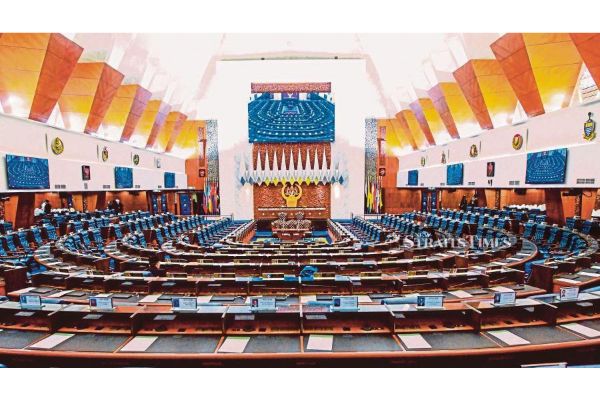Survey shows M’sians blame politics, not pandemic, for economic woes
Published on: Sunday, October 18, 2020
By: NST
 Credit: Nst
Credit: Nst
Kuala Lumpur: Malaysians blame the country’s prolonged political instability for their socio-economic problems and not Covid-19 which they felt would eventually go away.EMIR Research said this was the outcome of its focused group discussion (FGD) poll for the Third Quarter 2020, involving more than 60 participants representing the major sectors of the Malaysian population.
ADVERTISEMENT
“The participants put the blame on their woes more on the never-ending political instability in Malaysia which has been plaguing the country for some time... they see the pandemic as something very unfortunate but temporary because at some point in time, the pandemic will go away,” EMIR said in a media release Friday.
FGDs, it said, was conducted to capture the perspective of the rakyat and designed to ask broad questions that would allow participants to respond in their own words.
Four FGD sessions were conducted from July 12 to July 30, with questions were grouped under four major themes namely Wellbeing and Living Conditions, Economic Effects of the Covid-19 Pandemic, Government and Political Issues, and Political Support.
One of the participants said: “For me there is a lot of element of uncertainty. We do not know whether the Government will be there tomorrow or not.”
ADVERTISEMENT
Another participant stressed that a stable government was vital to plan and implement good policies that can benefit the people.
EMIR said similar concerns had been raised by Fitch Solutions, which expects Malaysian politics to blunt the country’s economic growth for the next decade.
ADVERTISEMENT
The international ratings agency predicted that Malaysia’s real GDP growth to stagnate at 3.4 per cent over the next 10 years, contrary to 6.4 per cent over the past decade.
EMIR also found two groups with opposing political sentiments in the result.
“The first group is composed of Chinese, Indians and urban Malays, who indicated their strong aversion towards individual-based, party-based and, more so, identity-based politics.
“The other group is mainly composed of rural Malays and to some extent, the civil servants, whose narratives are echoes of individual-based, party-based as well as identity-based political sentiments,” it said.
The first group argued that electorates should abandon partisan politics and hold all leaders and parties to the same moral standards.
“In one of the participants’ own words, politicians are only the mirror of the society or in other words we only deserve the government with the traits that we ourselves portray,” it said.
Members from the first group stopped short of naming their preferred candidates for the Prime Minister position, it said.
“Often, they would resort to saying that they do not see that currently there is a suitable candidate on the political arena or they would say that we need fresh blood in politics,” it said.
On the contrary, the second group perceived that the Malays, Islam, and the civil service were “under siege” during the 22-month rule of the Pakatan Harapan (PH) administration.
Despite their political differences, the discussants came together to laud Prime Minister Tan Sri Muhyiddin Yassin and his government’s efforts in managing the Covid-19 pandemic.
A large majority appreciated the economic assistance, especially the moratorium, which helped them to stay afloat during the Movement Control Order (MCO) period.
One participant said: “They (the government) did quite a lot recently with the Economic Recovery Plan (Penjana) that the PM announced.”
Another participant said: “I like the fact that they are trying to prolong the moratorium to like six months for those who are eligible because it helps a lot. It helps.”
EMIR also found out that while many Malaysians initially bemoaned the implementation of the Movement Control Order (MCO) to curb Covid-19 transmission, they saw its silver lining through the emergence of e-commerce.
“Many later realise that it is actually a blessing in disguise, where a new economy which relies on digitalisation and e-commerce gradually emerges.”Stay up-to-date by following Daily Express’s Telegram channel.
Daily Express Malaysia










